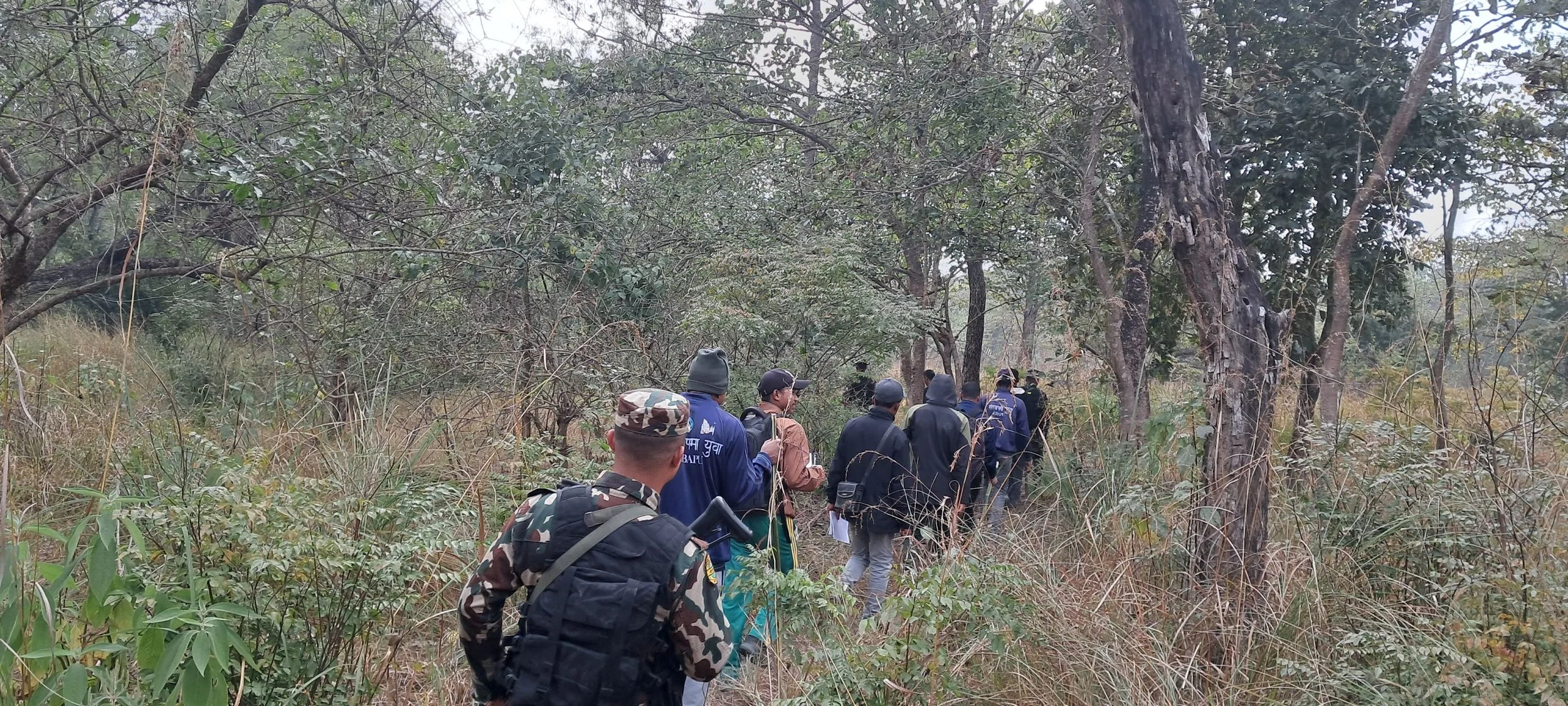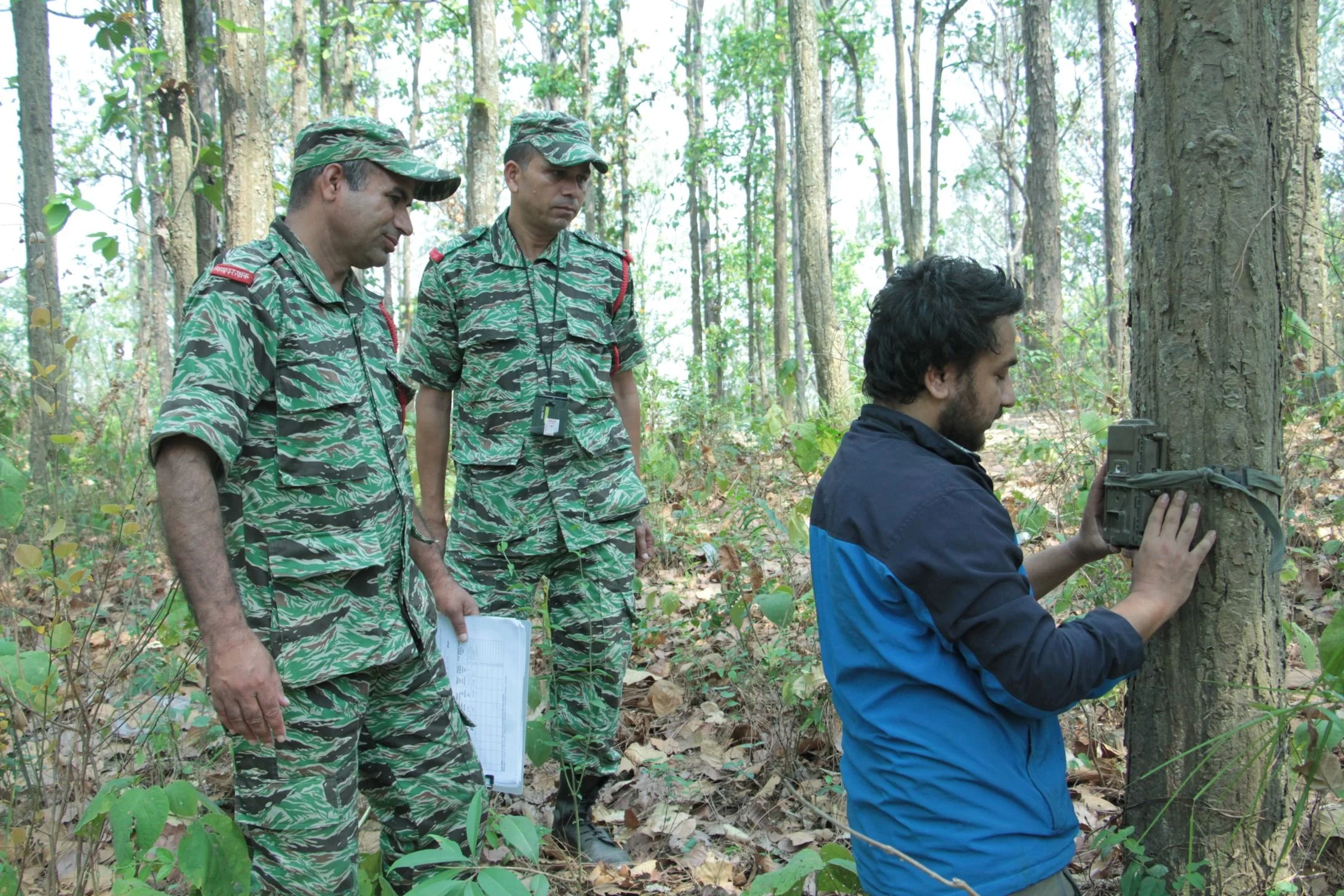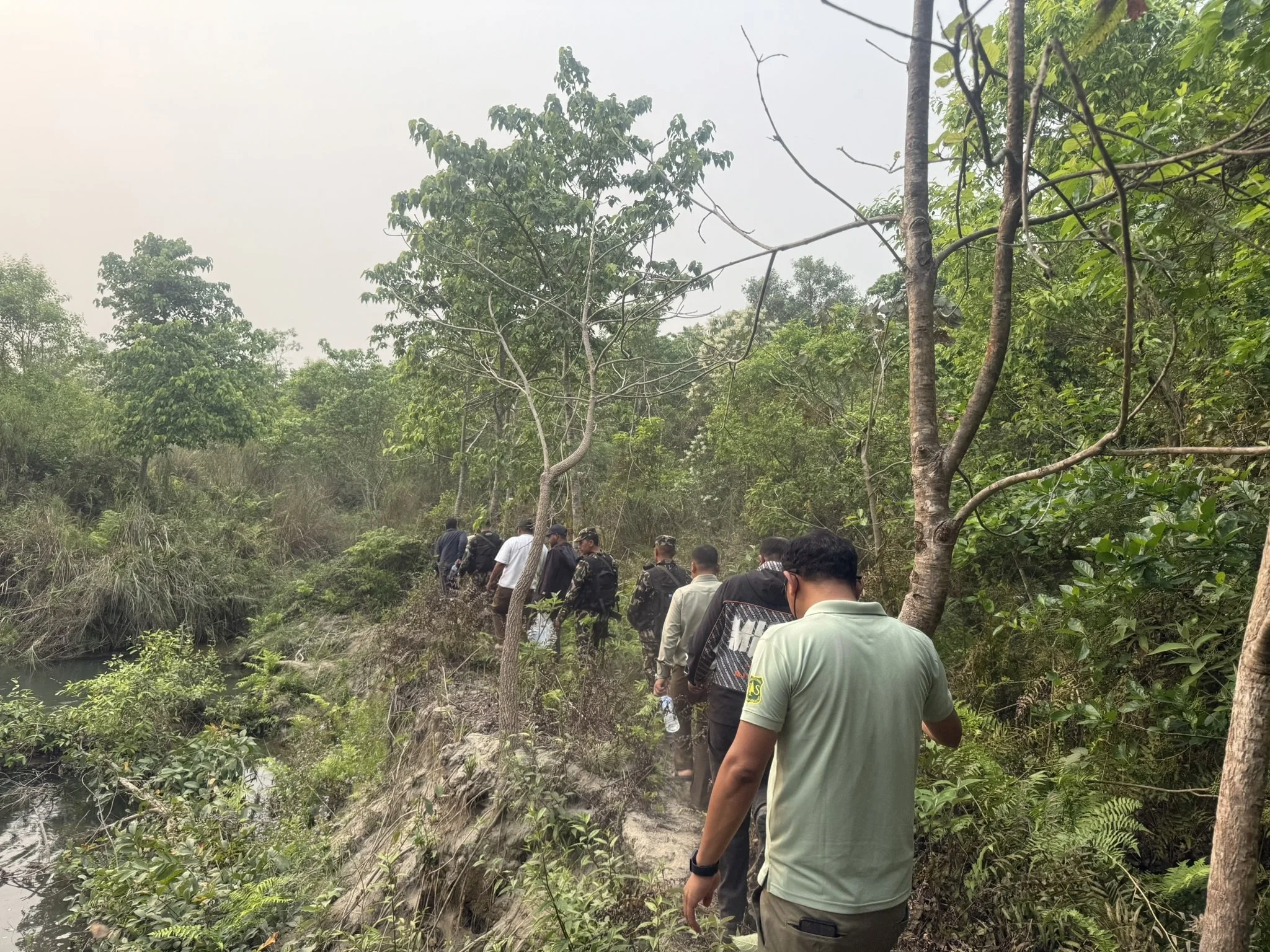Strengthening Wildlife Protection in the Bardiya-Banke Complex 2024 Report
Logistic Support for Long-range Patrolling
Patrolling efforts within Bardia and Banke National Parks made significant progress. A total of 32,155 patrols covered 347,139 kilometers. In Bardia, 18,461 patrols spanned 212,676 kilometers, while in Banke, 13,694 patrols covered 134,462 kilometers. The majority of these patrols were conducted on foot, with 29,477 patrols traversing 285,524 kilometers. Specifically, in Bardia, 17,843 foot patrols covered 197,070 kilometers, and in Banke, 11,634 foot patrols covered 88,454 kilometers. Bicycle patrols were conducted exclusively in Banke, comprising 1,431 patrols covering 20,793 kilometers. Elephant patrols totaled 107, covering 1,278 kilometers, with 82 patrols in Bardia and 25 in Banke. Additionally, vehicle patrols numbered 1,140, covering 39,544 kilometers, with 536 patrols covering 14,866 kilometers in Bardia and 604 patrols covering 24,678.84 kilometers in Banke. These extensive patrolling efforts reflect a strong commitment to wildlife protection and effective park management, ensuring thorough surveillance and safeguarding of these vital ecosystems.
Poachers, whose faces are blurred out, were caught with firearms and animal products.
Within the Bardia–Banke Complex, illegal activities such as tree felling, wildlife poaching, and fuelwood collection are frequently reported in the Bhurigaun and Rammapur areas of Bardia National Park, as well as in the Khadgabar and Aagaiya–Gavar regions of Banke National Park. The team also pinpointed potential habitats for wildlife and noted the existence of diverse species within the park. During the operation, a total of 61 individuals (36 female and 25 male) were arrested from the park. Some were caught collecting fuelwood, mushrooms, niuro (Fiddlehead Fern), and felled trees, while others were involved in illegal fishing activities. From the headquarters, 57 individuals were penalized with fines, while the remaining offenders were sentenced.
Deployment of Spy camera for advanced parks surveillance
20 motion sensor camera traps were purchased and are being installed in several conflict-prone and illegal trespassing areas within the national park. Similarly, one drone has been purchased to monitor the wildlife movements within the national park. So far, the drone has helped detect several incidents, including community members trespassing along the Karnali River, cattle grazing inside forest areas, and the movement of elephants and rhinos both within Bardia National Park and between Bardia and the Katarniyaghat Wildlife Sanctuary in India.
Mobility Support for Long-Range Patrolling
To enhance long-range patrolling, we have provided support in the form of fuel, vehicle maintenance and snacks. Currently, we are in the process of procuring walkie-talkies, sleeping bags, and tents to further aid patrolling efforts. These new resources will improve communication, ensure the safety and comfort of patrol teams during extended operations, and support the establishment of temporary field bases. This comprehensive support for mobility underscores our commitment to effectively protect the national parks and their wildlife.
Support CBAPUs for Anti-Poaching Patrolling Activities
Community-Based Anti-Poaching Units (CBAPUs) in Banke and Bardia National Park play a crucial role in our conservation strategy, actively participating in patrolling efforts to protect wildlife and combat poaching. During this reporting period, a total of 24 CBAPU units were mobilized within the Bardia–Banke Complex. Through these 24 CBAPUs, we conducted a total of 96 regular meetings where the CBAPU members shared their outcomes and future plans with the local communities or among themselves, reaching a total of 1,152 CBAPU members (661 female, 491 male).
Additionally, 73 awareness sessions were organized at the grassroots level to address human-wildlife conflict, coexistence, and illegal wildlife trade, engaging 1,460 community members (973 female, 487 male). Furthermore, 84 patrolling operations and 2-night camping sessions were conducted within the Bardia–Banke Complex in coordination with the Nepal Army and the respective national parks. Through these 84 patrols, a total of 387 kilometers was covered, with 31 kilometers patrolled by bicycle and 356 kilometers on foot.
Bicycle Support for CBAPUs
The bicycle support for CBAPUs initiative marks a significant step towards enhancing patrolling efforts within Banke and Bardia National Parks. A total of 62 bicycles were distributed to army personnel, park staff, and CBAPUs. Specifically, 20 bicycles were allocated to the army troops in Banke National Park, 10 to the army in Bardia National Park, 10 to the park staff (rangers and game scouts) in Bardia National Park, and 22 to the CBAPUs in Bardia. The CBAPUs play a critical role in safeguarding our national parks and these bicycles provide an efficient, cost-effective means of transportation, enabling more frequent and extensive patrolling within the national parks. For the CBAPUs, bicycles empower community members to actively participate in conservation efforts, conducting cycle patrols to monitor and protect wildlife. This initiative has improved surveillance, reduced poaching, and fostered a collaborative approach to preserving these natural areas.










